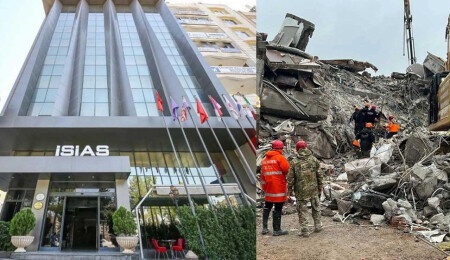Isias Hotel Defendants Accused of Probable Intent in Fatal Earthquake Collapse

A legal and scientific assessment submitted in the trial concerning the Grand Isias Hotel collapse during the February 6 earthquake concluded that the negligence of the defendants amounted to probable intent. The assessment was commissioned by the family of Serin İpekçioğlu, who died in the incident, and prepared by criminal law experts.

The report, entered into the case file at Adıyaman’s 3rd Heavy Penal Court, highlighted serious allegations of document forgery and deliberate failure to follow construction standards, which contributed to the tragedy.
Defendants Accused of Foreseeing Risks
The assessment states that the defendants foresaw the potential consequences of their actions but took no steps to prevent them. It claims:
- The hotel’s structural deficiencies were ignored during construction and operation.
- Fraudulent information was submitted to obtain the 2001 construction license, constituting forgery of official documents.
- These acts demonstrate that the defendants knowingly accepted the risks of harm, including loss of life.
Consolidation of Trials Recommended
The report calls for merging the current case against the hotel owners with proceedings involving public officials who approved the flawed construction license. Legal experts argue that combining these cases is essential to uncover the full extent of responsibility and ensure judicial efficiency.
Probable Intent Defined
According to the report, probable intent is established when individuals foresee potential harm but proceed without preventive measures. The defendants are accused of creating severe risks, remaining indifferent to the consequences, and failing to act over decades.
Broader Implications
The findings underline systemic failings in adhering to building regulations in disaster-prone regions, raising questions about the accountability of both private enterprises and public authorities.
The case continues at Adıyaman’s 3rd Heavy Penal Court.


Comments
Attention!
Sending all kinds of financial, legal, criminal, administrative responsibility content arising from illegal, threatening, disturbing, insulting and abusive, humiliating, humiliating, vulgar, obscene, immoral, damaging personal rights or similar content. It belongs to the Member / Members.